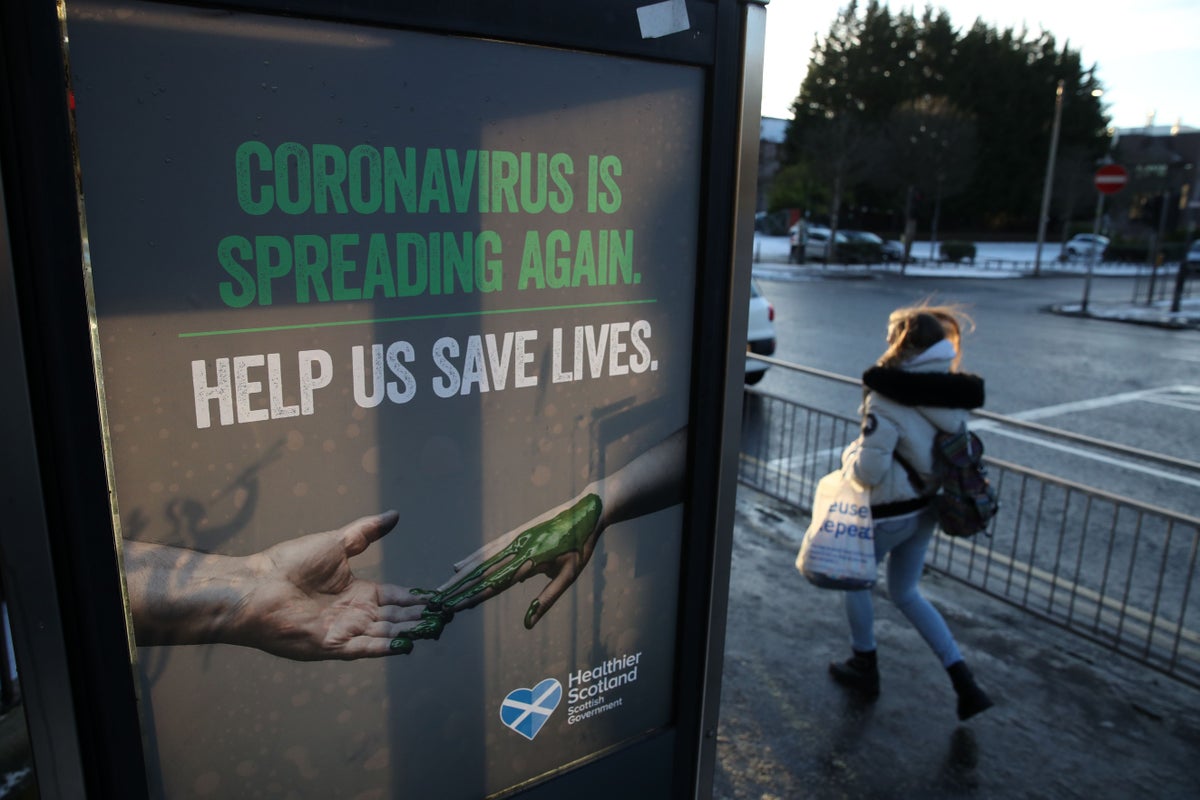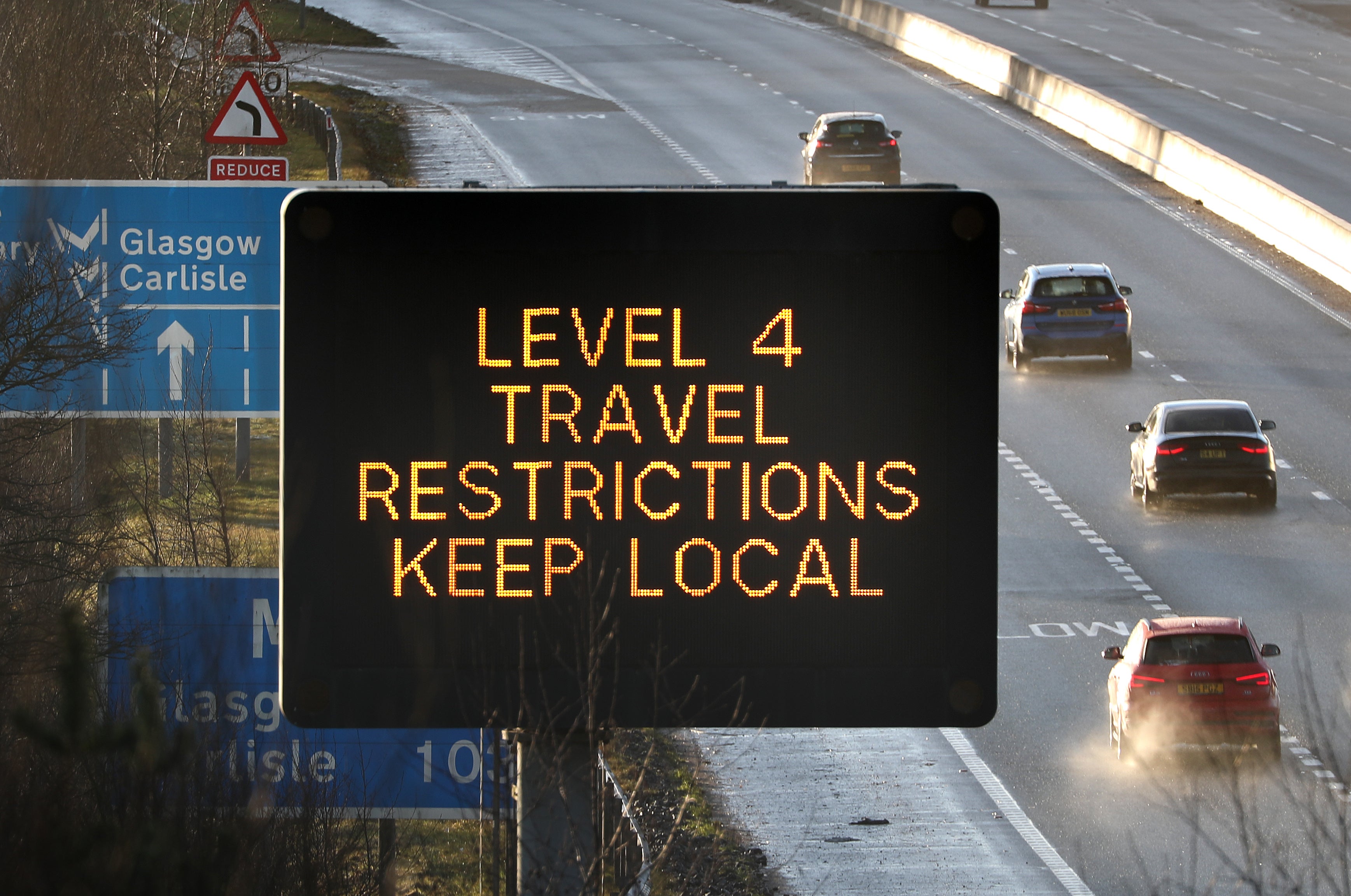
Regional restrictions did not change people’s behaviour during the coronavirus pandemic despite rising numbers in Scotland, a study indicates.
Researchers from the University of Aberdeen examined adherence to restrictions including social distancing, mask-wearing, staying at home and handwashing, and found people in high or low restriction areas behaved no differently to each other.
The study, published in the US journal Translational Behavioral Medicine, looked at behaviour during the Covid-19 pandemic in Scotland from March to November 2020, with 1724 people interviewed at random to get a representative sample.
People did not alter behaviour to follow enhanced local restrictions during the pandemic, the study found, and the restrictions may have been more effective if based around factors other than just coronavirus cases according to new research.
The study compared people’s behaviours before and after local restrictions, and compared behaviours of those living in areas with increased restrictions to those living in areas without.

People did not change their behaviour when restrictions were tightened, including social distancing and mask wearing, defying scientists’ expectations, research showed.
It also found people in high or low restriction areas behaved no differently to each other, and examined “intention and self-efficacy”.
Intention and self-efficacy related to keeping a 2.0 metre distance was assessed by asking: “Do you intend to follow all the government instructions…” and “How confident or not are you that you can follow the government instructions…” graded on a scale, according to the report.
The respondents answered questions about their behaviours from the past week, including if they had left home, had adhered to the social distancing rule, worn a mask in a shop or on public transport and if they washed their hands as soon as they got home.
Dr Chantal den Daas, senior lecturer in health psychology, in collaboration with the Covid Health and Adherence Research in Scotland (Charis) project, said the research “can effectively influence public behaviour” in the future.
She said: “When local restrictions were introduced in 2020 due to an increase in Covid-19 case numbers, we thought we would see a change in behaviour after they were implemented. But this was not what we found.
“It is really important to build an understanding of what could have been done differently and how we can effectively influence public behaviour in the future should we be faced with another public health crisis.
“This research provided insight on the type of information we should aim to collect in future pandemics, to see if we can find better measures to predict cases, examine the need for restrictions and the effect of any restrictions put in place.
“Future research in acute outbreaks should assess behaviour and beliefs about the virus, risk on an ongoing basis and identify the need for intervention even before cases rates start to go up.”
England faces a ‘never-ending fight for our flag and values’, Starmer warns
Herbert Gans, leading sociologist and media analyst, dies at 97
Scotland’s leaders pay tribute to ‘dedicated’ lifetime service of Pope Francis
Ukraine’s allies gather in London for latest round of peace talks
Bin strike talks resume amid calls to accept ‘fair deal’
A third of young men who follow masculinity influencers have acted on their advice







